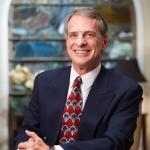By David Fitch
A Different Kind of ‘Faithful Presence’: Pushing Back on the Evangelical Kuyper Love Affair
The Evangelical Kuyperian Romance
I grew up in evangelicalism. If I I can exclude myself from that group who claim to have voted for Donald Trump, I am still, in a qualified way, an evangelical. I take it that the evangelicalism I am talking about is that group who were once, pre World War 2, fundamentalists. This large group of Christians were defensive, suspicious and even down right antagonistic toward culture. But somehow, after WW2, through the influence of people like Billy Graham, Christianity Today, Carl F Henry, etc., evangelicalism emerged from this group to be more engaged, open to and positive towards culture.
By definition, these ‘new’ evangelicals were fundamentalists coming out of their shell. They were still defined by their adherence to the centrality of the person of Christ and His work on the cross (especially the forensic view of the atonement) and the authority/veracity of Scripture (among other things). But whereas the pervious group had been contentious in their relationship to culture, these new evangelicals now sought to engage culture. As they emerged in the 70’s, they became influenced by the Dutch Calvinists theologians/philosophers. These Calvinists, already aligned with many of the aforementioned affirmations of the fundamentalists, took engagement with culture seriously. Following the lineage of their founder, Abraham Kuyper, they argued that the cultural mandate is the obligation of every Christian. This tradition of Kuyper produced many brilliant thinkers including the likes of Dooyeweerd, Plantinga, Wolterstorff and others. They influenced the minds of evangelical cultural thinkers like Francis Schaeffer, his protege Os Guinness and Chuck Colson. I was reading all these people in high school. When I went to the very ‘evangelical’ Wheaton College in the mid/late seventies, my mentor Arthur Holmes of the philosophy department would teach me these figures. Evangelicalism, you see, came out of its fundamentalist shell in large part, under the tutelage of these figures (read James KA Smith’s own account of his coming out of fundamentalism via Kuyper in Awaiting the King p. 83 ) .
And so evangelicalism has long been captivated by the work of the Dutch Calvinists. You might even call it a romance. Many years later the influence of the Dutch Calvinists on the evangelicals remains apparent. Pastor Tim Keller of NYC, as evidenced in his book Center Church, is warm towards Kuyper. Culture writers like Andy Crouch (although he personally claims to be a Wesleyan) and other writers at Christianity Today, bear the marks of Kuyper even though he might not know it (so I would argue). James KA Smith of Calvin College of course drinks deeply from the well of Kuyper, even though he does so revising and updating and transforming many of the concepts. And I would argue ultimately evangelical favorite James Davison Hunter in his book To Change the World plays on the same church-culture architecture of Kuyper even though he revises it and never mentions it. Kuyper expositor Richard Mouw was until recently president of the evangelical bellwether seminary Fuller Theological Seminary. And so, regarding an understanding of the church’s relationship to culture, whether explicit or implicit, evangelicalism has been largely under the influence of Kuyper.
Faithful Presence
Out of this tradition, ‘faithful presence’ has become the phrase to describe the new preferred mode of church engagement with culture for the inheritors of a progressive and/or culturally engaged evangelicalism (even if some of these folks have left the term evangelicalism behind). These words, ‘faithful presence,’ first gained prominence through the work of James Davison Hunter in his 2010 book To Change the World where, in chapter 5 of that book, he offered ‘faithful presence’ as a counter strategy to the failed approaches of culture engagement so prominent among ‘culture war evangelicals’ in the previous decades. Hunter’s book (I would argue) has the underpinnings of Kuyperian influence. Since the publishing of Hunter’s book, Tim Keller and James KA Smith each find occasions to use the term ‘faithful presence’ in their work and refine the term as well, each in their own way, combining the features of Kuyperian Dutch Calvinism with their own usage of the term ‘faithful presence.’ And so two very different people, one a New York City Presbyterian minister (Keller), the other a philosophy professor at a Christian (Dutch) Reformed College (Smith), have at times used ‘faithful presence’ (giving a nod towards James Davison Hunter each time) to describe a way of inhabiting the culture for transformation.
And so, a whole new way of thinking about inhabiting the world has unfolded around this term ‘faithful presence’ and we have the Dutch Calvinists to thank for this. It counteracts what has become the culture war mentality among evangelicals, that strident alignment of evangelical belief with Republican politics, as the only way to change the world. For this, we should all be thankful, even those people who are not Christians. There seems to be a patience about this approach. There seems to be a genuine positive outlook for affecting the common good. And we need this.
But Not So Fast
Nonetheless, I see some inherent weaknesses to this Dutch Calvinist influenced ‘faithful presence.’ Although not explicitly written to offer an alternative to the Davison Hunter influenced ‘faithful presence,’ I offered another version (some might say Neo-Anabaptist version) of ‘Faithful Presence’ in my book of the same name that I believe can help us avoid these weaknesses. In particular, I am concerned about two weaknesses in Kuyperian influenced ‘faithful presence.’ They are:
- The Inherent Individualism of Kuyper
IMO there is a persistent individualism within Kuyperianism and it weakens versions of ‘faithful presence’ influenced by it. It goes like this. The church is the liturgical shaper of individuals who are shaped to desire, love and pursue God and His purposes for themselves, their church and the world. These individuals are then sent out into ‘the world’ to enter the spheres of their vocational callings, knowing that each sphere has been created to fulfil God’s just and created purposes. As James KA Smith argues in this latest book via Kuyper, the church administers the sacraments, exercises discipline, forming disciples, in effect “nourishing a vibrant core of believers who, as an organism, infiltrate and leaven society.”(AK 87). And so, using the words of Oliver O’Donovan, Smith contends it is ‘the conscientious individual,’ formed within the church’s worship, that enters society and becomes the means by which its various spheres of activity shall be called to faithfulness. It is the individual sent out from the church on Sunday morning that shall be ‘faithfully present’ in the world witnessing to God’s Kingdom.
There’s a social architecture that lies behind this brand of ‘faithful presence.’ Via Kuyper, it assumes that God is at work in the various spheres of vocation including work, art, education, family, government. Each sphere works according to a created logic. The church is one of these spheres standing alongside the other spheres. This separation of the church from these other spheres is supposedly what keeps the church in check from usurping hegemony over these other spheres. This allows for a post Christendom society where the church is not in charge of all of society. This allows for a ‘principled pluralism’ in the in-between time between Christ’s first coming and the final consummation of all things in the new heavens and new earth and the final return of Christ. In the meantime, we can assume there is a common grace at work in the world in these spheres: a created order that people (outside of Christ) can see if they are just called to it by Christians influencers at work in the world.
But here’s the problem: if the church is the training ground for individuals to be sent out into the world for justice, the church itself shall surely become marginalized as one among many spheres in which an individual inhabits all 7 days of the week. It is no longer the center of the individuals’ formation, it becomes one (sphere)among many. (This seems to be one of the enduring conundrums that JAK Smith is dealing with throughout his book Awaiting the King. Smith, in a brilliant riff, calls it the Godfather problem p. 167). And then the real question is how can one and half hours of liturgy on Sunday shape an individual for faithful presence into the world the remaining hours of the rest of the week. How can said individual Christian NOT be absorbed into the formation of the dominant cultural narratives (that Smith spends ch.2 in Awaiting the King brilliantly describing) so that the American Christian becomes more American than Christian? (no matter how much the church might seek to an ‘antithesis’ to the culture.)
Counter this approach, I describe faithful presence (in my book ‘Faithful Presence’) as not one circle but three, not only the close circle of worship, but a dotted circle of discipleship in every day life and the half circles among the poor and broken. ‘Faith presence,’ I suggest, must be seen as whole way of life. Christians are not sent out as individuals to inhabit other spheres. Instead, we live life together as a community in the world. There isn’t one ‘logic’ at work in the church, another in the sphere of business, another in the sphere of education, another in the sphere of the arts, government and so on. The logic of our lives together (I’ve outlined it in 7 disciplines) shapes the way we engage all the places we live, even when we are there as individuals. Faithful presenece in this way is a way of life not accomplishable within Kuyperian social architecture (Smith too wants to argue for liturgy as a way of life, but cannot do it IMO without dumping sphere sovereignty – see Awaiting the King p.203ff). I do not separate redemptive grace from common grace (even though I do see a preservatory function to be played by the state etc.), but instead see God present and active in the whole world (omnipresence) yet specifically present, where He makes His presence visible (manifest presence) among us in all the circles of our lives. This is a different vision of church, a different kind of Faithful Presence.
- The Amalgamation of Power
Kuyperians in general do not differentiate between the power at work in democracy, government, and capitalism and the power that God exercises in the world. For Kuyperians in general (although not all), power is power. I have called the way power is flattened within Kuyperian accounts of church and culture- ‘Niebuhrian’ – for this exact reason. Reinhold Niebuhr thought power was coercive by nature and an inevitable part of operating in the world. Christians who avoid getting their hands dirty in this power of the world have an ‘unrealistic’ view of the way the fallen world works.
But, as I understand the Bible, God’s power works in a different way than earthly power (yes there are hints of ‘Two Kingdoms’ theology here, but the effect on the church-world relation for Anabaptists is the exact opposite of that of Luther). God works in the world through His presence. Scripture, over and over (it is absolutely permeated with this notion), describes the way God works via His ‘Presence’ (I spend ch. 1 of Faithful Presence outlining this idea). Greg Boyd’s latest tome describes in exhaustive depth how central God’s Presence (and the withholding of His presence) is to all of what God does. And there are of course numerous books that describe this phenomenon in the Bible by Biblical scholars Gordon Fee, John Walton, Greg Beale, and more. God’s power is then obviously non-coercive, non-violent, even non hierarchical. But somehow, in America, I fear we have forgotten that God works in this way. We have left behind the conviction that it is through His people (not a nation state) that God shall bring the world to Himself in his own way, in his own patience, via His presence. Because we have forgotten, we have not made space for Him to work. Faithful Presence is all about making space for God to work in His way in the world.
So there is a distinction between the power at work in the Kingdom of God versus the power exerted in the Kingdom of this earth. But too often, in my opinion, this power is amalgamated in Kuyperian notions of the church’s engagement with culture. This is why Hunter, for instance, too easily complains about the Neo-Anabaptists who (according to Hunter) see ‘powerlessness’ as the Christian posture in the world in To Change The World (181-183). Hunter does not seem to understand the distinction between two ways of exerting power. He cannot conceptualize (like Niebuhr before him) that God can and actually does work differently to change the world than the powers of US Gov’t, educators and other change agents of this world that operate via coercion and money.
This is not to say that God does not use state governments, rulers, and even principalities, towards his purposes. It is true after all that Cyrus was used to discipline and even restore Israel towards His ends. But as peace theologian Yoder argues carefully, this was so Israel, His people, could be the light to the nations that points to God and His presence in the world (here Isaiah 45 come to mind). As Yoder states, “Isa 10 exemplifies God’s use of the state’s vengeance to administer His judgement, but without approving of the vengefulness, and without exempting the ‘scourge of His wrath’ from judgment in its turn,” (Original Revolution, p. 62). God allows these powers of the sword to preserve the world from complete decimation, to provide space for people to know Him and come into His Presence, but this is not how God heals the world. He heals the world, restores it, renews it, through His presence and a people in submission to and in relation to His presence.
And so I am with James Smith when he quotes Oliver O’Donovan, recognizing in Christ that “Sovereignty over the world has passed to our Lord and his Christ.”(p. 80 AK) I am with Smith when he scolds the church for ‘eschatological forgetting”(p. 82 AK). But before we are encouraged as Christians to go inhabit our stations in the world, and call for people to shape up and get with God’s created order, we must never forget that it is ‘the lamb of God slain before the foundation of the world’ that opens the seals one at a time, unwinding the judgement, and bringing in the victory. This lamb does not rule by coercion, but through presence. (I urge Michael Gorman’s Reading Revelation Responsibly as a help to fully understand these dynamics). Jesus rules via a form of power that is radically different than the power that usurps and rules over people (Mark 10:45 par). Unless we acknowledge that, we are continually tempted to participate in the world on the world’s terms, coercive power. I continue to believe this is an oversight of Hunter, Smith and many Kuyperians in their theology of church and culture.
A Different Kind of ‘Faithful Presence’
I agree with 90% of what the Dutch Calvinists write about how to inhabit the world as Christians. I have learned much by reading their work. Where I differ with this group however, let’s call it the 10%, makes all the difference in terms of the posture we take in the world. In terms of seeing the church as a whole way of life (versus one sphere among many), this changes the way are formed. The church life becomes a formation in “all three circles” we live our lives (form Faithful Presence ch. 2) In terms of understanding the way God works through ‘His presence’ (versus amalgamating the way God works with the powers at work in the world) also changes the way we enter the world. We enter the world not in control, or that we know ahead of time what common grace shall look like. Instead, we go to be faithfully present to His presence in the world, engaging the world, responding faithfully. I suggest this all makes for different kind of faithful presence.
I agree with James Smith that practices of formation are essential to this faithful presence. But I contend this formation must be more than a formation of individuals sent vocationally into the world to call people into the created order of God (who do not know Him). These practices shape individuals into a social formation: the church as a way of life. They shape Christians into a way of life lived together in the world as a foretaste of the Kingdom in these in-between-times that invites the whole world to see what God is doing, and where He is taking the whole world, they just don’t know it yet. These practices shape a people (individuals) into a whole way of life together that makes His presence visible for the world to see and be invited into.
I fear however that the faithful presence of Hunter, Keller, and Smith et. al. suggests (and here I exaggerate to make my point) all we have to do is show up as individuals in the world, enlightened by liturgy to God’s purposes, and the world will be illumined to God’s purposes in government, education, the arts, business, family (by the virtues of common grace). (I recognize Smith seeks to address this in AK p. 203ff but offers no proposal for how this is possible within his framework). I suggest this could lead again to evangelicals entering the world with a power position (the wrong kind of power) all over again. I fear the arrogance of evangelicals past returns all over again to foster in us the over-confidence that we know ahead of time what God is doing before we even get there, and we have the power to get it done.
I propose a different kind of faithful presence, a presence that acknowledges we are not in control. To say ‘Jesus is Lord’ means, not only the state is not Lord (which O’Donovan and Smith rightly assert) but we Christians are not Lord either. Instead, we must go sit, listen, be present to His presence, and open space for His Kingdom wherever we might live. I suggest that God really does work in these ways powerfully if we will but open space for Him. In a world torn with antagonism, war, violence, anger, I suggest we need a church that lives faithful presence as a manifestation of this whole new way God works. This is the future of the church’s cultural presence. This is how God has chosen to change the world.















